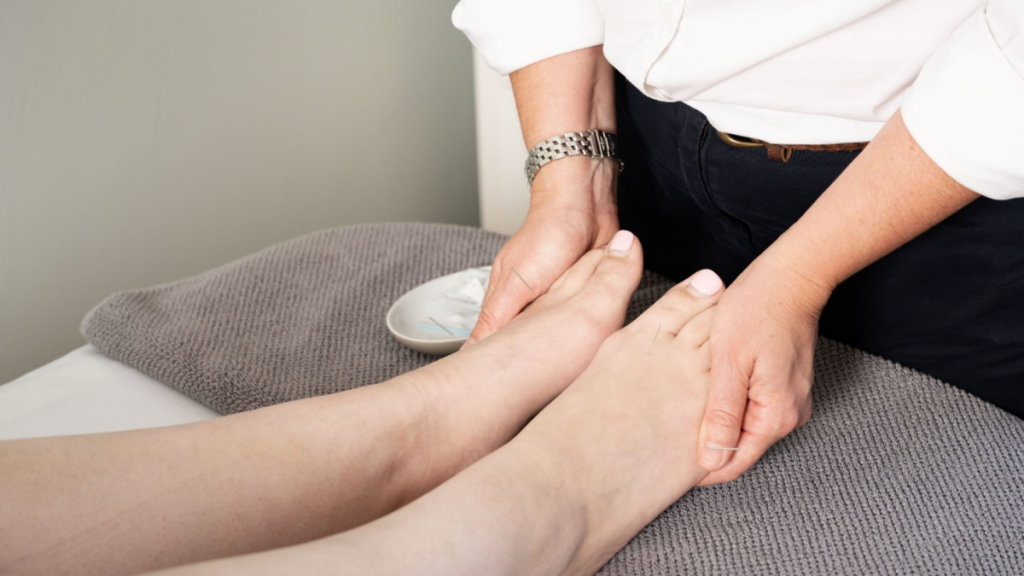Recent worldwide events have escalated stress and anxiety levels for many people, resulting in depression and poorly managed mental health. While removing stressors causing you to feel worn out and mentally drained is recommended, it’s not always possible. Seeing your medical doctor is important when seeking relief from stress and anxiety but there are alternative ways too.
Australians battling anxiety or depression can seek out treatments such as acupuncture Brighton wellness centres offer local residents in the area. Other alternative techniques can be done in the comfort of your home or while working at the office. Keep reading if you’re struggling to find balance and harmony while facing challenging times.
4 Alternative Ways to Relieve Stress and Anxiety for Better Mental Health
1. Acupuncture
An ancient form of Chinese medicine, acupuncture has been used for centuries to support the treatment of various illnesses and pain in the body. Stress and anxiety cause the body’s Qi to stop flowing optimally which is necessary for good health. By inserting ultra-fine needles into various points of the body, the acupuncture practitioner can restore the Qi’s natural flow.
Acupuncture treatments help stimulate the feel-good hormones, improving your mood while bringing relief from stress and anxiety. Stress hormones such as cortisol are reduced, letting your body relax and release pent-up energy.
One to two sessions are often sufficient for the effective treatment of stress and anxiety symptoms but more visits are recommended if you want to maintain balance and wellbeing. Lifestyle factors, ongoing stressors and chronic anxiety often require regular acupuncture treatments to ensure you keep the Qi flowing healthily, even during troubling times.
2. Yoga
Practicing yoga every day helps to decrease stress while bringing some serenity into your life. This mind-body exercise uses a range of poses to increase physical flexibility, reduce stress, lower blood pressure and improve your heart rate. A combination of breathing, physical postures and meditation is used to bring alignment to your mind, body and soul, inducing a state of peace.
This complementary approach to managing stress and anxiety symptoms has been used in many cultures for years to restore harmony and wellbeing. The physical poses add strength and flexibility to your body while controlled breathing is known to quiet your mind.
This practice often incorporates meditation, a powerful technique for mindfulness while helping you to live in the moment—useful for managing high-stress levels. Yoga enhances your mood and alleviates symptoms associated with depression and anxiety.
3. Self-Care
Giving yourself time to practice self-care is a highly effective way of managing stressors in your life. Some practical ways of including self-care in your daily life include:
- Going for walks in nature: City dwellers can take strolls in local parks but even walking through your neighbourhood will elevate your mood while decreasing anxious feelings.
- Taking a hot bath: Lighting some candles, putting Epsom salts in the bath and locking the bathroom door so no one can disturb you can help you feel calmer as you soak in the tub.
- Eating healthily: Choosing to eat healthily shows that you respect and love your body. Picking the right foods helps to keep your stress hormones balanced while keeping anxiety at bay.
- Indulging in a hobby: Being creative has been shown to reduce stress and anxiety. Indulging in your favourite hobby will help keep your mind off difficult situations while elevating your mood.
Practicing self-care needn’t cost you an arm and a leg! Using these practical examples will improve the quality of your life while reducing feelings of despair and depression. It’s important to schedule them into your daily routine if you’re serious about managing your mental health and living a better life.
4. Exercise
Exercising is one of the most recommended ways of relieving high stress and anxiety levels. Moving your body through exercise on a regular basis controls your cortisol levels while releasing serotonin, a hormone responsible for improving moods. It relaxes your body while increasing physical strength and muscle tone.
Experts recommend exercising at least two hours a week to get the full benefits such as stress and anxiety relief. Brisk exercises such as cycling, fast walking, jogging, swimming or paddling are highly effective for alleviating symptoms associated with stress.
Setting fitness goals will ensure you stick to your exercise routine. But, hiring a personal trainer or joining a local gym is hugely beneficial if you’re not disciplined enough to maintain momentum on a regular basis.
Final Thoughts
With mental health statistics revealing that one in five Australians battle anxiety-related conditions, finding alternative ways of relieving stress is vital for society at large. Booking an appointment with your local acupuncture clinic and practicing the other suggestions in this article regularly are effective ways of improving your current lifestyle.
While it’s not always possible to remove the stressors from your life you can make sure you don’t become a statistic of poor mental health. Start today and find relief from stress and anxiety. You deserve it!




